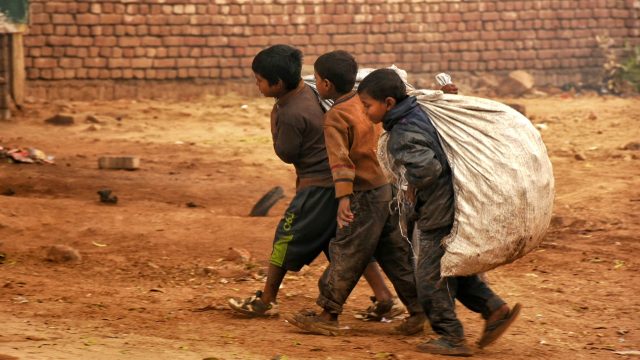Changes: The IMF and World Bank Annual Meetings
Our Policy Director reflects on what must happen for these august institutions to be enablers - and not roadblocks - to real reform

"Turn and face the strange" David Bowie famously sang in Changes. This sentiment feels especially apt in today’s world. As we navigate these changes, the call for transformation grows louder, echoing the need to reshape our global financial systems to better meet the demands of the future.
We seem to be moving from one "crucial opportunity" to the next, creating a sense of fatigue and confusion as key summits blur together. With the Summit of the Future less than a month ago and COP16 already underway, time is running out to make meaningful changes. November brings COP29 and the G20 summit, and the Fourth Conference on Financing for Development (FfD4) is already on the horizon, with the Elements paper already under preparation, and inputs submitted just last week.
Central to these efforts are the IMF and World Bank, whose Annual Meetings must deliver real outcomes to make the global financial system more transparent, inclusive, and responsive to today’s challenges, such as climate, biodiversity, and inequality.
Representation and governance
At the heart of this necessary transformation is the outdated governance structure of the Bretton Woods institutions. Currently, voting power disproportionately favors wealthy nations, leaving the Global South with little influence over decisions that directly affect them. This imbalance must be addressed to make global finance more inclusive, transparent, and responsive to today's challenges.
Civil society groups are pushing for a more democratic governance structure at the IMF and World Bank, ensuring that all countries—regardless of economic status—have equitable representation. This change would not only increase the legitimacy of these institutions but also enhance their ability to foster resilience and inclusive sustainable development more effectively.
Local actors, including cities and grassroots organizations, also deserve a seat at the table. These groups are on the front lines of both climate action and economic development and must play a more significant role to drive change and address the unique needs of marginalized communities.
Debt and taxation
Poorer nations face a severe financial conundrum: they spend twice as much on servicing their debts as they receive in climate finance. According to an IIED report, Least Developed Countries (LDCs) spend $31 billion annually repaying debts, while they only receive $16 billion in climate finance. The IMF and World Bank must establish a transparent, permanent mechanism for sovereign debt restructuring, particularly for Small Island Developing States (SIDS) and LDCs. Additionally, creating a global debt registry and regulating credit rating agencies would ensure fairer treatment for countries burdened by unsustainable debt. Without these reforms, the dual crises of debt and climate finance will continue to undermine global development and environmental goals.
Taxation plays a crucial role in securing the financial resources necessary for both development and environmental protection. However, multinational corporations often exploit tax loopholes, depriving countries—especially those in the Global South—of the revenue needed to fund public services and climate initiatives. In response, civil society organizations are calling for a UN-led multilateral forum to set global tax rules, ensuring that developing countries are fairly represented in these discussions.
A UN Framework Tax Convention would centralize and bring transparency to tax negotiations, promoting a fairer system that prevents tax avoidance and ensures all countries can effectively secure the funds required for sustainable development.
There can be no meaningful development without addressing climate change and biodiversity loss. The IMF and World Bank must integrate climate risks into their financial frameworks, ending financing for environmentally harmful activities and scaling up investments in sustainable projects. Aligning all financial flows with the Paris Agreement and the Kunming-Montreal Biodiversity Framework is not optional—it’s essential.

Biodiversity loss, driven by unsustainable resource use, pollution, and climate change, creates systemic risks that must be addressed across all financial systems. As we approach COP16 and COP29, climate and biodiversity finance can no longer remain siloed within their respective UN Conventions. Sustainable development, debt, trade, and taxation are all interconnected with environmental concerns, and these issues must be addressed holistically in global discussions. The G20's role will be critical in embedding environmental resilience into global financial strategies, ensuring institutions like the IMF and World Bank align their operations with environmental goals.
Private sector: beyond profit
The private sector has a critical role in shaping the global economy, but it must shift from prioritizing profit to embracing sustainable development. Businesses must be accountable for their environmental and social impacts, contributing positively to public goods such as climate action and biodiversity conservation.
Private investments should align with international human rights and environmental standards. This includes paying fair taxes, ensuring decent working conditions, and reducing environmental harm. Shifting from profit maximization to sustainability will not only benefit society but also ensure businesses remain viable in a future driven by sustainability.
Global trade can be a powerful engine for development, but it can also increase inequalities and must be reshaped to promote inclusivity, sustainability, and equity. Trade policies should align with the Sustainable Development Goals (SDGs), the Paris Agreement, and biodiversity objectives. Trade laws must consider human rights and economic fairness, ensuring that the benefits of global trade are shared equitably, particularly with vulnerable populations.
Inclusive trade discussions should prioritize civil society and local actors in decision-making. Transparent trade negotiations and the promotion of fair labor standards are key to ensuring that trade contributes to both social and environmental goals.
Civil society (so I turn myself to see me)
For reforms to succeed, civil society must move beyond wishful thinking and symbolic gestures. Too often, engagement is limited to rhetorical discussions or letters that achieve little. Civil society must be more propositional, offering actionable, evidence-based solutions to global challenges.
Rather than relying solely on campaigning, civil society should collaborate directly with policymakers, financial institutions, and the private sector. By designing policies and instruments that are both ambitious and practical, civil society can drive real change. The IMF and World Bank should also strengthen their dialogues with civil society to create a more constructive partnership to tackle global challenges at the local level.
Time may change me - But you can't trace time
The Pact for the Future includes a crucial commitment to “develop a framework on measures of progress on sustainable development to complement and go beyond gross domestic product (GDP).” Relying solely on GDP offers a distorted, short-term view of progress. The global community must embrace broader metrics that focus on long-term wealth creation, benefiting people, communities, and the planet. The IMF and World Bank meetings are a rare opportunity to begin reimagining the global financial system, ensuring it meets the needs of today’s world.
“ From civil society organizations and movements we are calling for changes in governance, debt sustainability, taxation, climate and environmental finance, trade, and private sector accountability to achieve meaningful progress. The time for transformative action is now—our future depends on it.”
The global financial framework, rooted in the post-WWII Bretton Woods institutions, no longer fits today’s geopolitical realities. It must prioritize human rights, sustainable development, and planetary protection while ensuring equitable representation and access to resources for all nations. It must implement the Pact for the Future, approved at the SoF and aiming at transforming global governance.
The Pact for the Future, though not perfect, presents a valuable opportunity to create systems and policies that foster resilience, and sustainable development for all. Reforming the IMF and WB is critical to this transformation. From civil society organizations and movements we are calling for changes in governance, debt sustainability, taxation, climate and environmental finance, trade, and private sector accountability to achieve meaningful progress. The time for transformative action is now—our future depends on it.
- Sofia Martinez, GEC


